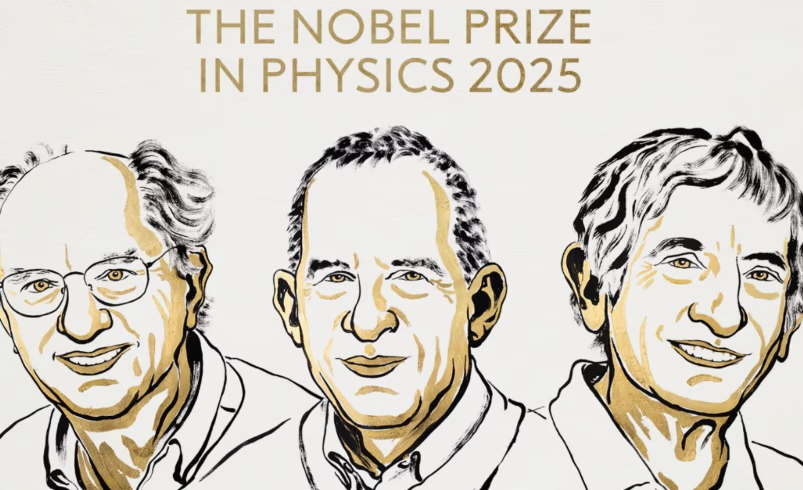Scientists honored for groundbreaking quantum tunnelling discovery
- October 7, 2025
- 0

The 2025 Nobel Prize in Physics has been awarded to John Clarke, Michel Devoret, and John Martinis for their pioneering work that brought quantum mechanics into the macroscopic world. Their experiments demonstrated quantum mechanical tunnelling and energy quantisation within an electric circuit—an achievement that redefined how scientists understand the boundaries of quantum behavior.
Quantum mechanics traditionally describes phenomena at the atomic and subatomic scale. However, the research conducted by Clarke, Devoret, and Martinis showed that these same principles can manifest in systems large enough to be seen and manipulated directly. Their work provided concrete evidence that quantum effects are not confined to particles but can influence larger physical systems as well.
The trio’s experiments centered on electric circuits designed to exhibit quantum mechanical properties. By carefully controlling these circuits, they observed macroscopic quantum tunnelling—a process where particles move through energy barriers that would be insurmountable under classical physics. They also demonstrated energy quantisation, revealing that even in a circuit visible to the human eye, energy levels exist only in discrete steps rather than continuous ranges.
For decades, physicists have sought ways to connect theoretical predictions of quantum mechanics with observable phenomena at larger scales. The achievements of Clarke, Devoret, and Martinis bridged this gap by providing experimental proof of concepts once thought purely theoretical. Their findings helped establish a foundation for technologies that rely on quantum coherence and control—fields that continue to shape modern scientific research.
The demonstration of macroscopic quantum effects has far-reaching implications beyond fundamental physics. It supports ongoing advancements in areas such as superconducting qubits and quantum computing, where maintaining quantum states over measurable systems is essential. The trio’s discoveries have influenced how researchers design devices capable of harnessing these delicate phenomena for computation, sensing, and communication technologies.
By awarding this year’s Nobel Prize in Physics to Clarke, Devoret, and Martinis, the committee acknowledged not only their experimental ingenuity but also their contribution to expanding humanity’s understanding of nature’s most fundamental laws. Their work stands as a testament to how persistent inquiry into complex physical principles can yield insights with both theoretical depth and practical significance.
The recognition of macroscopic quantum mechanical tunnelling marks a turning point in modern physics—one that continues to inspire new generations of scientists exploring how the strange rules of the quantum world shape the universe we experience every day.